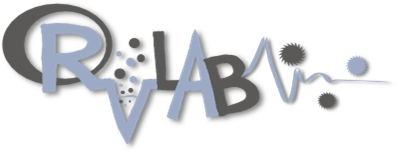LifeWatch RvLabRvLab is a very useful and powerful tool for statistical analysis of biodiversity data. RvLab makes use of “R”, a statistical processing environment widely used by scientists working in many biodiversity-related disciplines. It supports an integrated and optimised (in respect to computational speed-up and data manipulation) online R environment. RvLab tackles common problems faced by R users, such as severe computational power deficit. Many of the routines operating under the R environment, such as the calculation of several biodiversity indices and the running of the multivariate analyses, are often of high computational demand and cannot deliver a result when the respective datasets are in the form of large matrices. RvLab allows for a predefined, commonly-used set of R functions to run on the LifeWatch Infrastructure in order to support large-scale computational and modeling activities. Potential users include those who are familiar with R (and some of its functions), who are in favour of open source software and would like to dedicate some time to get familiar with its functions, without having to go through the steep command-line R learning curve. To run RvLab, you can register on the LifeWatch Greece portal, from where you can also access numerous other biodiversity and data services. RvLab is run via a web interface from that portal: you can select functions to run, data to run them on, and set parameters, and inspect the outputs. There is also a mobile application version of RvLab. RvLab is also to be included in the LifeWatch Tesseract workflow on NIS (invasive species): this being a cloud installation, it will allow users to run RvLab on the outputs from PEMA. More information will be posted here when this is available for general users. For more details, see the publication. |
|
RvLab was developed at the Institute of Marine Biology, Genetics and Aquaculture (IMBBC), Hellenic Centre for Marine Research (HCMR), in collaboration with the Information Systems Laboratory of the Foundation for Research and Technology Hellas (FORTH-ICS), in the framework of LifeWatch Greece project.
Except some demo data that users can use for testing, all the other input is files uploaded by the users.
The RvLab can be accessed at the website https://rvlab.portal.lifewatchgreece.eu/
- Lifewatch Greece
- EMBOS (Development and implementation of a pan-European Marine Biodiversity Observatory System)
- ASSEMBLE Plus
The RvLab offers parallel versions of a multitude of R functions, built on top of OpenMPI implementations. Some of the R packages used for optimizing the functions include pbdMPI, RPostgreSQL, dplyr and others. The R vLab web application has been developed using open technologies (PHP, MySQL, Javascript). R vLab is able to take advantage of remote resources (both storage and processing power). Our current installation uses the resources of a local cluster.

